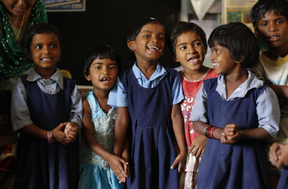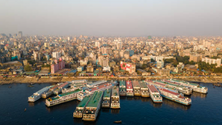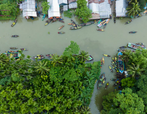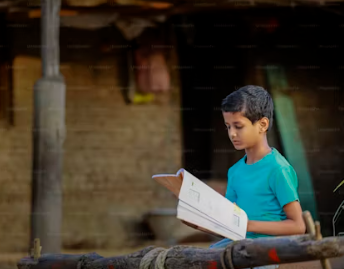Bangladesh is a country of resilience and hope, where millions of children face daily challenges but have the potential to change the world. UNICEF, the United Nations International Children’s Emergency Fund, has been a significant force in supporting children in Bangladesh by creating sustainable programs and partnerships that address critical needs. “UNICEF Bangladesh” is not just a term; it represents a beacon of support and transformative change in the lives of children across the nation. In this article, we will explore the key areas UNICEF Bangladesh focuses on, the initiatives that have made a difference, the challenges they face, and how we can contribute to their mission for a brighter future.
UNICEF Bangladesh A Commitment to Every Child

Since its establishment, UNICEF has worked tirelessly to improve the lives of children worldwide, and UNICEF Bangladesh has played a vital role in Southeast Asia. With a mission to advocate for the rights of children and provide essential services in health, education, protection, and more, UNICEF Bangladesh aims to ensure that every child gets a fair start in life. Whether through health campaigns, educational programs, or protection initiatives, UNICEF Bangladesh is dedicated to creating lasting, positive impacts on the lives of children and their families.
Key Areas of Focus for UNICEF Bangladesh
UNICEF Bangladesh operates through strategic programs focusing on the essential needs of children in the country. These areas reflect the fundamental aspects of child welfare and development: child protection, health and nutrition, education, and water, sanitation, and hygiene (WASH).
- Child Protection
Child protection is a critical issue in Bangladesh, where many children face the risk of child labour, early marriage, trafficking, and abuse. UNICEF Bangladesh has launched numerous programs to address these issues:
- Combating Child Labor: Child labour remains prevalent in various industries across Bangladesh. UNICEF Bangladesh works closely with local organizations and government bodies to eliminate child labour through awareness campaigns, education programs, and support services for families.
- Preventing Child Marriage: Bangladesh has one of the highest rates of child marriage globally. UNICEF Bangladesh’s programs focus on raising awareness among communities, working with local leaders, and implementing educational programs for young girls and boys to understand their rights.
- Protecting Children from Trafficking and Abuse: UNICEF Bangladesh collaborates with law enforcement and community groups to prevent child trafficking and abuse. The organization provides rehabilitation support for rescued children, ensuring they receive the necessary care and counselling.
Health and Nutrition

Good health and proper nutrition are essential for every child’s development. However, many children in Bangladesh lack access to basic health services and suffer from malnutrition. UNICEF Bangladesh has implemented multiple programs to address these issues:
- Maternal and Child Health: UNICEF Bangladesh promotes maternal health by providing support for prenatal care and safe delivery practices, focusing on reducing the risks of maternal and child mortality.
- Immunization Programs: Vaccinations are a primary focus for UNICEF Bangladesh, ensuring children are protected against preventable diseases. These immunization drives are carried out nationwide, especially in remote areas where healthcare facilities are limited.
- Combating Malnutrition: UNICEF Bangladesh runs nutritional programs that address malnutrition by educating parents on the importance of a balanced diet and providing supplemental nutrition for children and pregnant women in need.
- Education for All
Education is one practical way to break the cycle of poverty.
UNICEF Bangladesh is committed to ensuring every child, especially girls and children from marginalized communities, has access to quality education.
- Primary Education Initiatives: UNICEF Bangladesh’s primary education programs aim to increase enrollment rates and reduce dropout rates. By providing learning materials, training teachers, and improving school infrastructure, the organization ensures a conducive learning environment.
- Empowering Girls Through Education: Girls face unique challenges in accessing education in Bangladesh. UNICEF’s programs focus on educating communities about the importance of girls’ education and supporting initiatives that keep girls in school.
- Non-formal Education for Street and Working Children: Many children in Bangladesh have missed out on traditional schooling due to poverty. UNICEF Bangladesh offers non-formal education programs tailored to their needs, allowing them to acquire basic literacy and skills.
- Water, Sanitation, and Hygiene (WASH)

Access to clean water and proper sanitation is crucial for a child’s health. Is at the forefront of initiatives to improve water, sanitation, and hygiene across the country.
- Clean Water Access: Bangladesh faces significant challenges in providing clean drinking water, particularly in flood-prone and coastal areas. Works to install safe water sources and educates communities on water purification techniques.
- Improving Sanitation Facilities: By building and renovating sanitation facilities in schools and communities, UNICEF Bangladesh encourages good hygiene practices. These initiatives are especially beneficial in rural areas, where sanitation facilities are often lacking.
- Promoting Hygiene Education: UNICEF Bangladesh conducts awareness campaigns to promote hygiene practices like handwashing, which significantly reduces disease transmission rates.
UNICEF’s Approach in Bangladesh: Building a Sustainable Impact

To ensure that its efforts have a lasting impact, UNICEF Bangladesh takes a community-centered approach. This method empowers local communities to participate actively in the initiatives, leading to better outcomes. By working closely with the Bangladesh government, local NGOs, and community leaders, UNICEF Bangladesh fosters strong partnerships that help drive sustainable change.
- Community Involvement: Local involvement is at the heart of UNICEF Bangladesh’s work. Community-based programs ensure that local leaders, families, and children are actively involved in planning and executing initiatives.
- Partnerships with Government and NGOs: UNICEF Bangladesh collaborates with government agencies to align its programs with national policies and goals. Working with NGOs, UNICEF can leverage additional resources and expertise to amplify the impact of its programs.
- Adapting to Local Needs: Bangladesh is highly diverse, with varying needs across regions. UNICEF Bangladesh tailors its programs to suit the specific needs of different communities, whether it’s healthcare in rural areas or education support in urban slums.
- Notable Programs and Success Stories
Over the years, UNICEF Bangladesh has launched several successful programs that have brought significant changes to children’s lives. These are some of the more important ones.
- Meena Program for Girls’ Empowerment: The Meena Program is a unique initiative created by UNICEF to inspire young girls in Bangladesh. The program uses the character Meena, a young Bangladeshi girl, to educate children and communities on the importance of girls’ education, gender equality, and child rights. This program has reached millions and encouraged communities to prioritize girls’ education.
- Back-to-School Campaign: Following natural disasters and the COVID-19 pandemic, many children dropped out of school. UNICEF Bangladesh launched a back-to-school campaign to encourage children to return to school, ensuring they don’t lose out on education. This campaign also provides support for teachers and parents, fostering an environment that prioritizes learning.
- Rohingya Refugee Support: The Rohingya crisis brought a wave of refugees from Myanmar into Bangladesh. Played a crucial role in providing healthcare, education, and protection to Rohingya children and their families in refugee camps, ensuring their basic rights are safeguarded.
Challenges and Solutions in Bangladesh

While UNICEF Bangladesh has made remarkable progress, challenges remain. Poverty, frequent natural disasters, and rapid urbanization continue to impact the organization’s efforts. However, remains resilient in finding solutions:
- Natural Disasters: Bangladesh is vulnerable to natural disasters, which can disrupt infrastructure and livelihoods. UNICEF Bangladesh addresses this by implementing disaster resilience programs and preparing communities for emergency response.
- Rapid Urbanization: With more families moving to cities, urban slums are growing. Has expanded its services to provide health, education, and protection in these high-density areas.
- Resource Constraints: Operating on limited resources, Optimizes its efforts by focusing on high-impact areas and working closely with local communities to ensure sustainable outcomes.
How You Can Support
Supporting UNICEF Bangladesh can be done in various ways, whether through donations, volunteering, or raising awareness. Every contribution, big or small, has the power to make a significant difference in a child’s life.
- Donations: Donations directly support UNICEF Bangladesh’s programs. From education initiatives to health campaigns, each donation goes toward creating a safer, healthier future for children.
- Volunteering and Advocacy: Becoming an advocate means raising awareness of child rights issues. Volunteering and spreading the message helps the organization reach a broader audience, amplifying the voices of those who need help the most.
- Corporate Partnerships: Organizations can contribute by partnering with UNICEF Bangladesh. Corporate social responsibility (CSR) initiatives allow companies to support critical programs, benefiting both the community and the business.

UNICEF Bangladesh
Conclusion
UNICEF Bangladesh is a testament to the power of collective action and dedication. Working tirelessly to improve the health, education, and protection of children, has positively impacted countless lives. However challenges remain, and the need for support is ongoing. By raising awareness and contributing to UNICEF’s mission, we can help build a future where every Bangladeshi child has the opportunity to thrive.
The journey to a better Bangladesh is long, but with organizations like leading the way, hope remains strong. Every effort counts in creating a safer, healthier, and more promising future for the children of Bangladesh. Join hands with and be part of a movement that transforms lives and builds futures. One child at a time, we can change things together.
